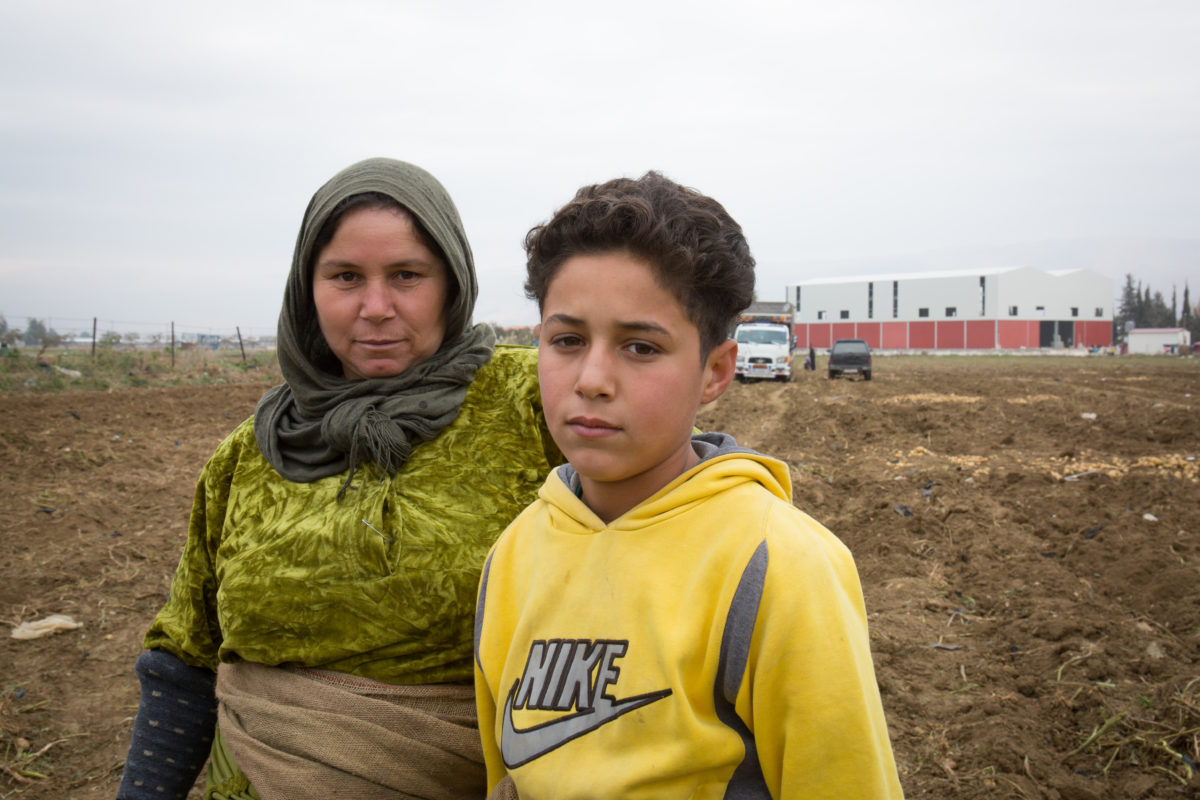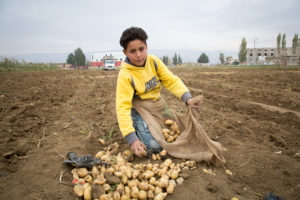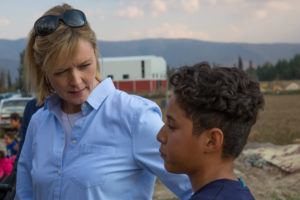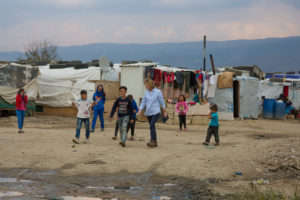Future? What do you mean by future?

Presenter and reporter Julie Etchingham travelled to Lebanon to see the work of CAFOD partner Caritas Lebanon.
It is Wednesday afternoon and we’re sitting on the floor of a shack covered in tarpaulin with eight year old Karim, where he’s been living with his family since fleeing Syria.

He was up at 6am this morning picking potatoes in the neighbouring field to bring in a few dollars a week for his family. He is a strikingly handsome young boy – bright eyed and smart – and he’s sick of having to work.
“Sometimes we work five hours, six hours,” he tells us; “Collecting potatoes, this is the nature of my job. Then we just unload the potatoes and they take them away.”
And the worst thing about it, I ask him?
“The fact I have to work and I’m still a child. It’s hard work and not easy – it’s tiring for a boy.”
But at least here in the camp they are safe.
Horrors of the Syrian civil war
He tells me of the horrors they fled from just across the border in Syria. You can see the mountains they trekked across from the door of their hut.
“A fighter jet came overhead and it hit our area. We had to flee at night and we never turned back. We had to rush quickly. Some people were killed and some managed to escape. We had to sleep in the open air – it was cold because we didn’t have enough clothes.”

Karim is just one of a hundred and fifty children in the makeshift camp – one of many like it in the Bekaa Valley.
Because there are no official settlements for refugees in Lebanon, this one is a jumble of breeze blocks and tarpaulins, muddy tracks and old farm machinery. It’s a desperate place to try to raise a family, and winter is coming. The hardship in the coming months will be unimaginable.
CAFOD and Caritas Lebanon’s immediate work here is to make sure the families have enough warm clothes and blankets.
The future for Syrian refugee children
The children all crowd round our camera – occasionally putting their tiny hands in ours. One little girl has odd shoes on as she jumps through the puddles, but at least they fit. Another proudly shows me a little necklace.
One of the older girls – maybe nine years old – is keen to sing for us. She gets a little gang of her friends together, all heights and ages – and they start to sing their ABC. The song might be a memory from better times, when learning had begun.
But since fleeing the war, most of these children have never been in a classroom.
Lebanon and aid agencies like CAFOD and Caritas Lebanon have managed to get some kids into school – but the numbers are so high, it’s an almost impossible task to reach all of them. A quarter of a million Syrian refugee children are getting no formal education at all.
The saddest part of our chat with Karim was when we talked about school. He is totally resigned to not going – as if even the thought of it now is baffling.

“Every child should get a chance to go to school – but here there’s no opportunity. I work to help my family and that’s it.”
I ask him what he dreams of in the future. He almost laughs.
“Future? What do you mean by future?
“It’s difficult to answer. Life is difficult. I don’t have a dream.”
*Karim is not his real name.
Presenter and journalist Julie Etchingham reported for ITV News at Ten on CAFOD and Caritas Lebanon’s work with Syrian refugee children. Watch the full story below.
If you missed Julie’s first blog from Lebanon, please take a look to see when Julie met Yazan and Majed.